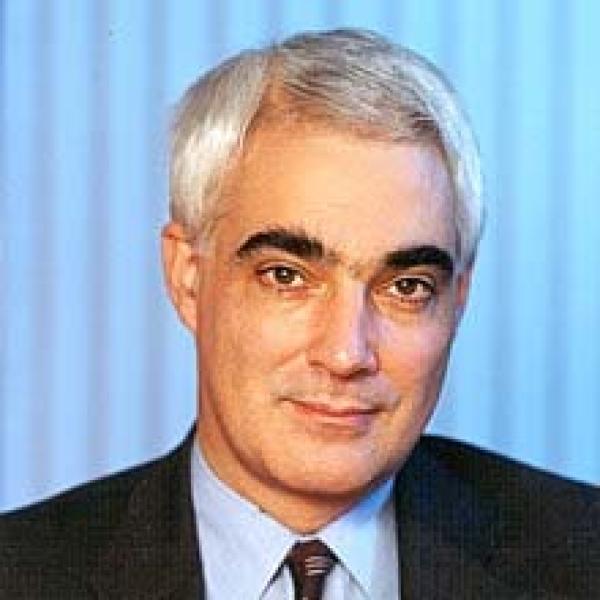Gus O’Donnell, former Cabinet Secretary to three Prime Ministers and head of the Civil Service, will deliver the IFS 2020 Annual Lecture at 18:00 on Thursday 24 September: The Covid Tragedy: following the science or the sciences?
Gus O’Donnell will provide a wide-ranging and critical assessment of the government’s handling of the COVID-19 pandemic. He will argue that the government has failed on a number of levels. It has not collected and used adequate data; it has not taken proper account of the impact of its response on wellbeing; it has deferred too much to the medical science and taken too little account of a range of human sciences; and there has been weak strategy and leadership, and a tendency to over promise and under-deliver, thereby reducing confidence in government.
In his lecture, Gus O’Donnell will cover the following:
- The UK Performance: The most appropriate metrics to measure a country’s performance during the pandemic are excess deaths and changes in wellbeing. Focusing on changes to GDP is unhelpful. On all three measures, the UK ranks poorly among peer countries.
- A Wellbeing Approach: O’Donnell advocates that the government uses wellbeing measures to inform tradeoffs in making policy decisions. Wellbeing metrics would be much more helpful in identifying what the true costs of lockdowns are, for example declines in mental health and access to healthcare. Evidence shows that these declines are particularly acute among already disadvantaged groups (e.g. young people; BAME community; women). We need to make tradeoffs in a way that most reduces the R number at minimum social and economic cost.
- Evidence from Human Science: Government strategy and policy is failing repeatedly because Sage has been dominated by medical scientists whom the government instinctively defers to. However, the key to controlling the virus is changing people’s behaviours. The government’s incorporation of expertise from behavioural and other human sciences has been woeful. The weak “stay alert” campaign is an example of this. When the government says it “follows the science”, this really means that it follows the medical sciences, which has given it a one-sided perspective and led to some questionable policy decisions.
- Rhetoric Over Substance: The government talks of “moonshots” and sets impressive targets (e.g. 100k tests a day). This obsession with soundbite leaves institutions scrambling to achieve targets which are usually not where focus is best directed. The government is then forced to play up the numbers to show how it’s achieved these targets. This is depleting trust in government information. Even worse, these tactics can lead to public distrust in scientific data and the UK’s scientific institutions.
- Reforming UK Institutions: The abolition of PHE in the middle of the pandemic is difficult to see as anything other than a political attempt to deflect blame. Such moves can seriously deplete morale within institutions that are key to the pandemic response. More generally, the UK has one of the strongest scientific communities in the world and yet it is as though our institutions have simply not been built for handling this crisis. We need to look seriously at how to reform our institutions so that we are much more capable of responding to challenges like COVID. The government should be setting up a National COVID Council modelled on the National Security Council, which would allow senior ministers and officials to consider (rather than just defer to) the opinions received from Sage.
- Challenges Ahead: The perfect storm is a no-deal Brexit and a second wave of COVID. It is absolutely imperative that the government reaches a deal with the EU to head off this potentially calamitous outcome. The government urgently needs to collect systematic data on the activities of civil society to understand how this crucial sector can help mitigate the precipitous drops in wellbeing and help disadvantaged communities deal with new policy measures. There are also opportunities ahead, for example the UK can take a leading role in safe and ethical vaccine development, distribution and vaccination programmes. To achieve this we need to revive the moribund international networks, like the G20, to deliver global solutions for this global problem. Again, to do so successfully the government must draw on the broad range of human sciences. We need engineers to set up distribution networks and behavioural scientists to encourage vaccine take-up. Having a vaccine is not vaccination.
Gus O’Donnell, former Cabinet Secretary to three Prime Ministers and head of the Civil Service says:
"We have to ask why a country with such reputed health and intelligence institutions has been so incapable of combatting the Covid-19 pandemic. In 2019, we were ranked second in the world for pandemic preparedness by the Global Health Security Index. A litany of new rules and a steady stream of leaks reflects a government struggling to emerge from firefighting mode. Without a clear strategy, strong leadership and the use of good evidence from a range of human sciences, there is a risk that our efforts to emerge from this pandemic will be protracted and extremely costly".
Paul Johnson, Director of the IFS, says:
"As Lord O'Donnell makes clear an effective response to this crisis requires the best use of all the available data and evidence, including from the social sciences. Throughout, the IFS has been compiling such evidence to demonstrate the impact of Covid and government policy on the economy, on inequalities, on mental health and wellbeing, on education, and more besides. It is crucial that government weighs up all this evidence when determining its policies. If they are led by the medical science alone we won't follow the best path out of this crisis."
Lord Gus O’Donnell will deliver the Institute for Fiscal Studies’ 2020 Annual Lecture at 18:00 on Thursday 24 September. He is a former Cabinet Secretary to three Prime Ministers and head of the Civil Service and is speaking in this capacity.
Full information and a link to watch the event live can be found here: https://www.ifs.org.uk/events/1839









